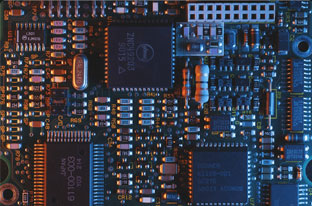* On your first PCB Assembly order!
* Up to $300 discount
 C - A L L E Y
C - A L L E Y 
About Us | Events | Company Structure | Management Staff Structure | Market Focus | Company Certification | Our Services
The PCBA board is a crucial component of all electrical equipment, and its global demand has increased over the past few decades. As a result, many PCB manufacturers are now focused on minimizing faults within PCBs. To achieve this, a comprehensive understanding of common PCB faults is essential to identify the root cause(s) and employ the appropriate measures to prevent these defects. This understanding ensures the production of high-quality PCBs and eventually, a high-quality PCBA product. It's important to note that these factors have a direct impact on the functionality and quality of the final PCB assembly. With the increasing complexity of PCBs due to advancements in technology, the possibility of PCB assembly failure is also higher.
1. Cold welding refers to the insufficient wetting effect of solder joint.Characteristics: grey, dull appearance.When viewed under a microscope, the solder joints appear granular.The main reasons: the temperature curve of reflux furnace is set improperly, the furnace speed is too fast, the product is placed too densely through the furnace, the solder paste is deteriorated, etc.
2. Tin refers to two or more solder joints connected together, resulting in a short circuit.Features: Two pins connected together.Main reasons: solder paste printing with tin, solder paste collapse;
3. False welding refers to the component pin and PCB pad connection is not good.Such anomalies are most likely to occur in SMT welding anomalies.Characteristics: Pins are not connected to the pad, or the pins are wrapped with solder but not connected.Main reasons: component pin or solder pad oxidation, deformation, pollution, design size mismatch, printing, installation deviation, furnace temperature setting mismatch, etc.

The likelihood of PCBA failure depends on whether the assembly is classified as a class 2 or class 3 product. According to IPC standards, products classified as Class 2 are expected to provide consistent performance and a long lifespan, but uninterrupted service is not critical. On the other hand, Class 3 products require constant high performance or performance-on-demand, and equipment downtime is unacceptable. Moreover, Class 3 products may need to function in extreme environments, and the equipment must always work, especially in critical systems like life support. In either case, ensuring that every assembly is of the highest quality and in proper working condition before leaving our shop is crucial to prevent latent failures.

Please send Email to kspcba@c-alley.com or call us through +86 13828766801 Or submit your inquiry by online form. Please fill out below form and attach your manufacturing files( PCB Gerber files and BOM List) if need quotation. We will contact you shortly.
 +86 13828766801
+86 13828766801 kspcba@c-alley.com
kspcba@c-alley.com https://www.kingshengpcba.com/
https://www.kingshengpcba.com/ 2/F, Building 6, Tangtou 3rd Industrial Zone, Tangtou Community, Shiyan Town, Baoan District, Shenzhen, China, 518108
2/F, Building 6, Tangtou 3rd Industrial Zone, Tangtou Community, Shiyan Town, Baoan District, Shenzhen, China, 518108